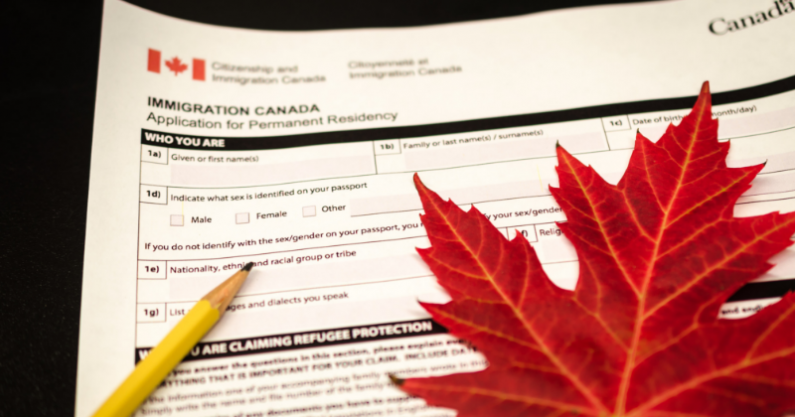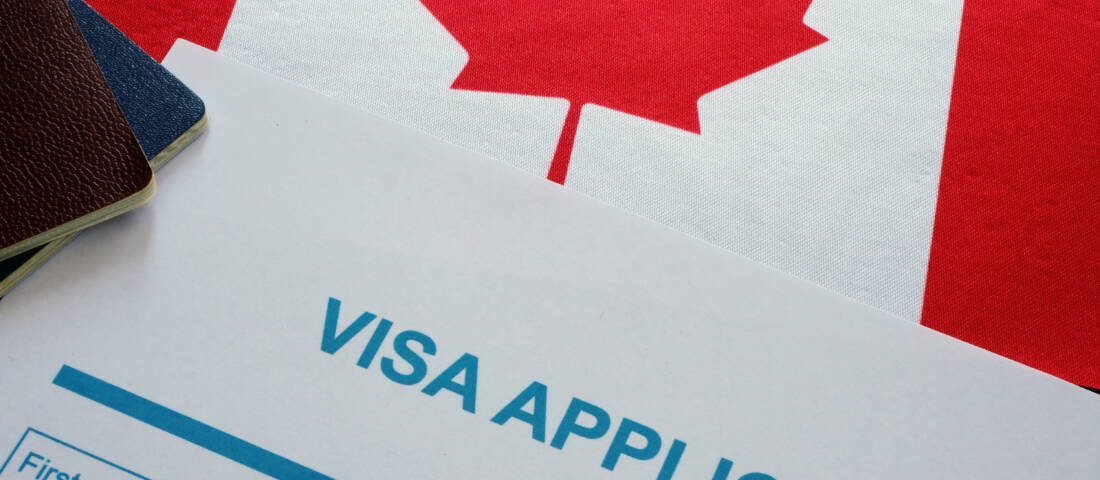BOOK YOUR FREE CASE EVALUATION
When you apply for Permanent Residence status in Canada, you are legally declaring your intention to live in Canada although you are a citizen of another country. You may marry, have friends and family in your home country, or be assigned to work overseas by your Canadian employer. When you become a Permanent Resident, there are some circumstances where you can live overseas and maintain your Permanent Resident status in Canada.
The basic IRCC residency requirement to maintain your status as a Canada Permanent Resident:
To maintain your status as a permanent resident, you must live in Canada for at least 2 years - 730 days - within a 5 year period. During this time you must be physically in Canada.
The two years do not need to be continuous. An officer can confirm if your time in Canada counts when you re-enter Canada, or apply for a permanent resident card.
But there are exceptions where time spent outside Canada may also count towards the two years / 730 days residency requirement.
Part Days in Canada
Any day spent even partially in Canada counts towards the 2-year residency obligation. One could travel to the U.S., spend the night, and travel back to Canada the next day and still have 100% of days towards the residency requirement since some part of both days were spent in Canada.
This is extremely important for Canada Permanent Residents who work in the United States by making day trips. For example, individuals living in Canada border cities may be employed by U.S. firms.
As long as the resident is back in Canada within a 24 hour period, then that day counts as a full day of residency in Canada.
Traveling With a Spouse or Partner or Parent Who is a Canadian Citizen
If a Permanent Resident accompanies a spouse or partner who is a Canadian citizen outside of Canada, then each day outside Canada is considered to be a day physically present in Canada.
A child Permanent Resident who is traveling with a parent who is a Canadian citizen can accompany that parent outside of Canada and be considered physically present in Canada for calculating the 730-day requirement.
Traveling With a Spouse or Partner or Parent Who is a Permanent Resident
If a Permanent Resident accompanies a spouse or partner who is also a Permanent Resident outside of Canada, they will be considered physically present in Canada only if the spouse or partner is employed full-time by a Canadian business or in the public service of Canada or a province.
This applies to a child Permanent Resident of a Permanent Resident.
A “Canadian business” includes incorporated businesses and other enterprises capable of generating revenue, with an anticipation of making a profit, and held by Canadians. (We do NOT recommend a business set up primarily to maintain permanent residence.)
The Permanent Resident spouse needs only be employed full-time by a Canadian business – not necessarily working overseas for a Canadian business, although that would count too. So, time spent away from Canada on holidays while employed full-time at a Canadian business would count as days spent in Canada.
Permanent Resident Employed Abroad
A permanent resident can maintain Permanent Residence status if he or she is employed abroad, subject to a few restrictions:
- First, you must be a full-time employee of a Canadian business or the public service with the head office in Canada that controls assignments overseas. This would entail working for a Canadian company with overseas offices that you were assigned to from the head office in Canada.
- This applies to someone who has a contract with a Canadian business. You can be a contractor or a full-time employee working overseas for a Canadian business.
- This includes assignments to an affiliated enterprise of the Canadian business or a client of Canadian business overseas.
In these situations, days spent abroad are counted as days spent physically in Canada.
Individuals Who Have Been Permanent Residents For Less Than 5 Years
If you’ve been a PR for less than 5 years, you have to worry about residency requirements. The visa officer will determine if you could meet the residency requirement at the 5 year mark.
For example, if you get Permanent Residence status then immediately leave the country for 3.5 years, the visa officer may determine you can only possibly be resident in Canada for 1.5 years in the 5 year period since you received PR. You could then lose your Permanent Resident status and you won’t be able to enter Canada.
Humanitarian and Compassionate (H&C) Grounds
Humanitarian and Compassionate Grounds are last ditch effort to retain Permanent Residence – do not rely on it as your primary strategy.
If you cannot meet the 730-day residency requirement to qualify for Permanent Residence status, you may apply for an exemption based on a specific hardship. You have to inform the visa officer that you want to be considered under H&C grounds for PR.
You will need to document a compelling and specific hardship and what you are doing to address this hardship, and should show your intent to remain a Canadian Permanent Resident, although this is not legally required.
You need to show a “disproportionate” or “unusual and undeserved” hardship that loss of Permanent Residence would cause you or family members. Typically, it would include circumstances beyond your control.
Some factors that visa officers will consider are:
- Medical condition of yourself or family members;
- Any alternatives to caring for family members overseas who suffer from a medical condition;
- Are your circumstances “compelling” and beyond your control?
- Were you somehow prevented from returning to Canada?
- Was the PR a child who left with a parent?
- If you were a child with PR, did you return to Canada the earliest opportunity?
- Are you a citizen or PR of another country? If so, it goes against you;
- Had you established yourself in Canada – job? property?
- What links have you maintained here?
This is a discretionary process, so make your best case to the visa officer. It’s a good idea to hire an immigration lawyer if you are in this situation before you make a case to the visa officer to ensure your case is the strongest it can be – you only have one chance to make a Humanitarian and Compassionate appeal

Who Has the Burden to Show the Permanent Residence Requirements Were Met?
You do.
The PR applicant has the entire responsibility to prove you meet the Permanent Residence requirements to the satisfaction of the visa officer. If you don’t have the proof even if you meet the PR requirements, then you may lose your permanent resident status.
What Evidence Should I Present to the Visa Officer?
It is absolutely critical that every time you leave Canada, you maintain careful records of your travel. This includes plane tickets, hotel bookings, visa stamps – anything that shows exactly when you left the country and when you returned.
IRCC recommends a travel journal as an easy way to record your time outside Canada. It can help you fill out the permanent resident application form. For example, start with 1825 days (5 years) on the first page. Then subtract any days you are out of the country from that amount. The number of days can never go under 730. I suggest you give yourself at least a week’s leeway – never cut it that close. Include documents, bills, correspondence and reference notes as evidence that supports your time out of Canada and when you returned. Keep the travel journal with your evidence.
If you fall within one of the exceptions discussed above, be sure to keep detailed evidence. If you are relying on the employment exception, keep your employment contract, the letter assigning you overseas (signed by your employer), and information on your employer, including its overseas offices.
Here are some other suggestions for supporting evidence:
-
information on the nature of the business, length of time it has been in operation and the number of employees it has in Canada and abroad;
-
clear description of your role overseas, including duration of assignment; and
- details on the relationship between the Canadian business and the overseas office or client;
- T4 slips, pay slips; and
- business licences, articles of incorporation and related documents.
Remember – the business does need not be a corporation. Other enterprises count as well, including partnerships, proprietorships, and so forth. Include the relevant documents for the enterprise you are working for.
Appeal Rights for Loss of Permanent Resident Status
You may lose your PR status for failure to meet residency requirements or for other reasons. You can appeal a visa officer's decision that you did not meet the residency requirements to maintain Permanent Residence. You need to file an appeal within 60 days of your written decision to the Immigration and Appeal Division. If you fail to file within 60 days you have no further recourse.
It’s a good idea to consult an immigration lawyer if you have questions about maintaining your PR status or you need to appeal your Permanent Residence Canada residency requirements to a visa officer, and you want to ensure your case is as strong as possible. You only have one chance to make an appeal.
This post does not constitute legal advice – you should consult with a lawyer so he or she can evaluate your unique circumstances and application materials.
BOOK YOUR FREE CASE EVALUATION








